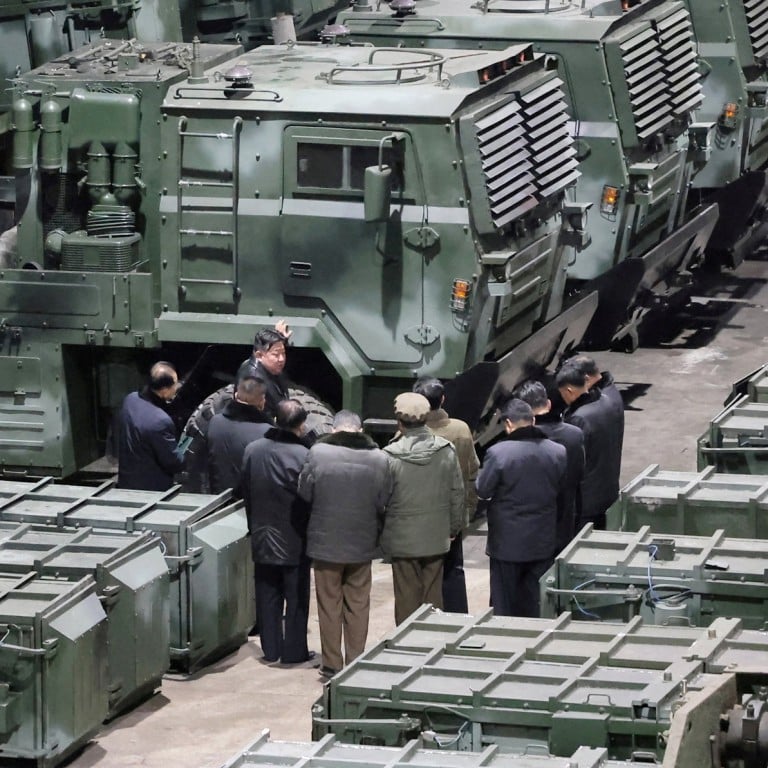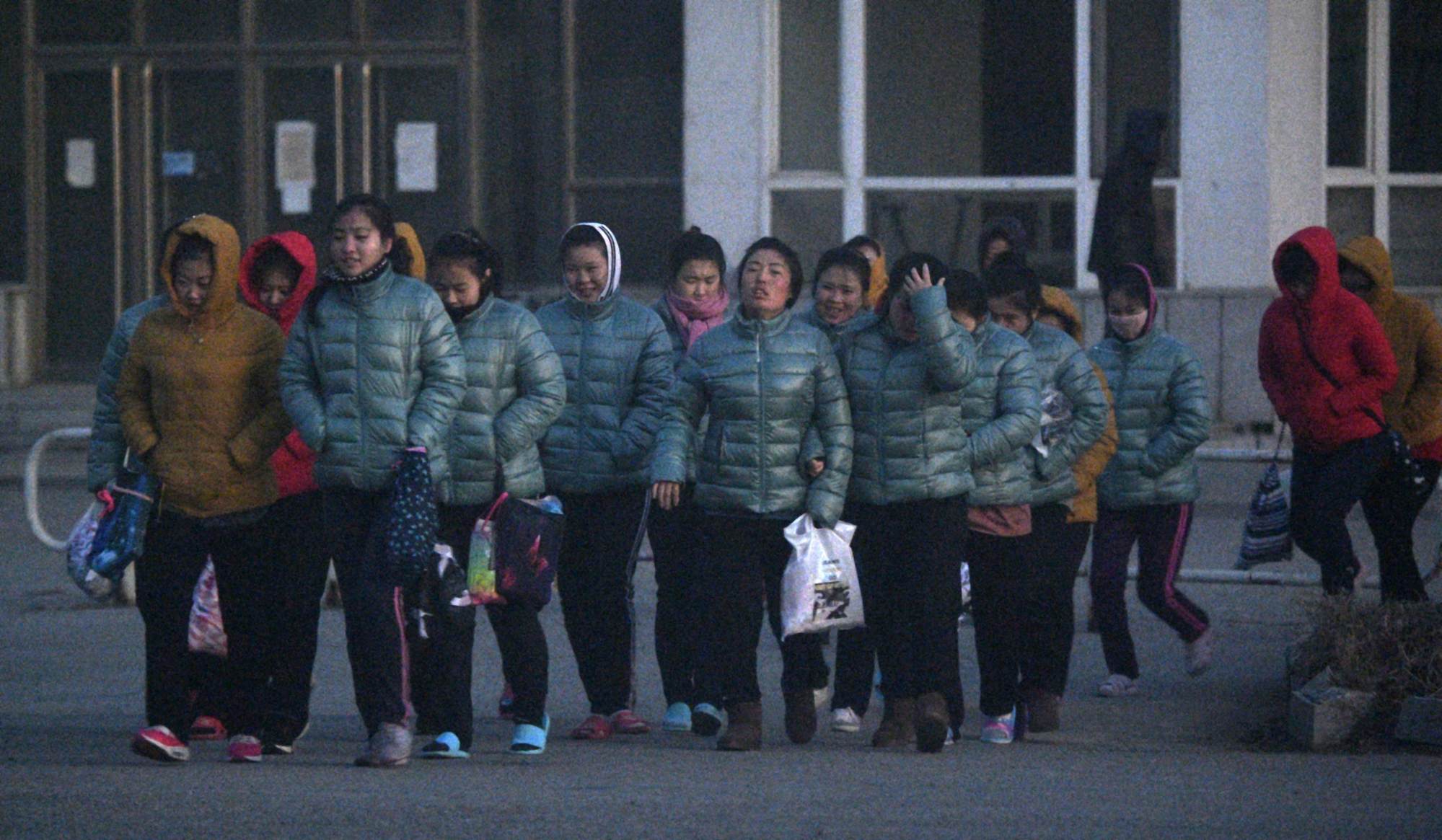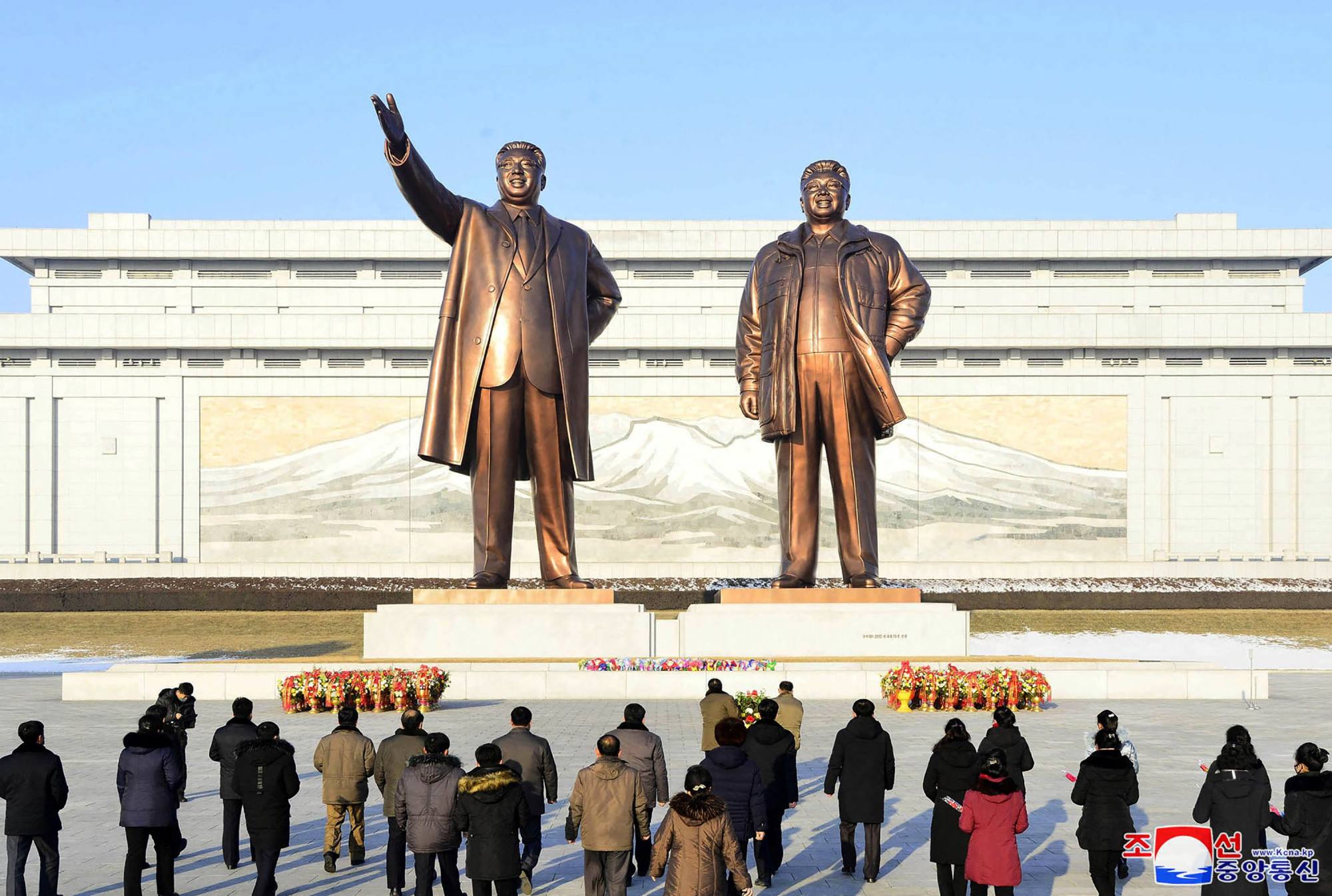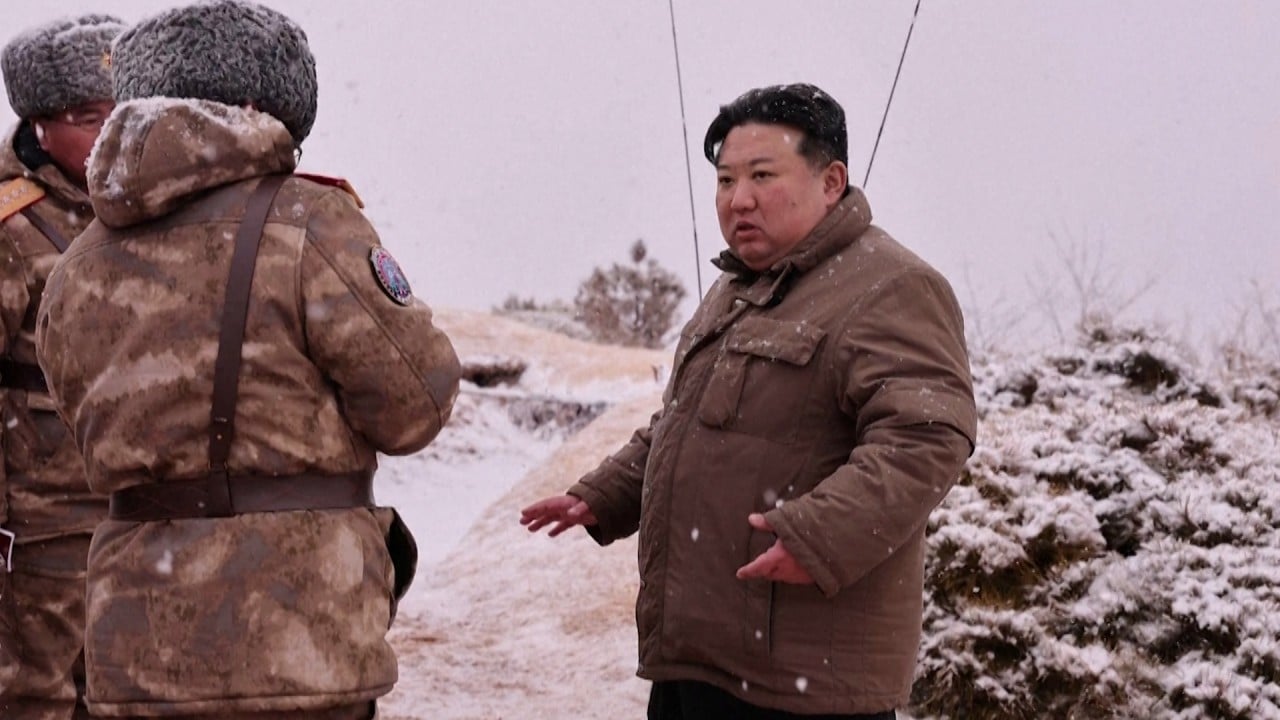
Could reports of a North Korean workers’ riot in China ‘pose threats’ to the regime?
- Workers at a North Korea-run factory in China were said to have staged a deadly protest after learning their back pay had been transferred to the regime’s arms programme
- The apparent incident has sparked concern it could trigger a chain of protests among other disgruntled North Korean workers overseas, observers say
South Korea’s spy agency on Tuesday reported multiple incidents of “various accidents” involving North Korean workers abroad, citing “poor working conditions”. “We’re closely following this situation,” a spokesman for the National Intelligence Service told This Week in Asia without elaborating.
‘At all levels’: China, North Korea vow deeper ties amid no let-up in missile tests
Cho Han-bum, a senior analyst at South Korea’s Institute of National Unification, said the riots erupted around January 11 at a garment factory in China’s Jilin province, where some 2,500 North Koreans are hired by the Jonsung trading firm operated by the North’s defence ministry.
“A North Korean manager was killed, and three other executives were seriously injured,” Cho told This Week in Asia on Tuesday.
Their owed wages totalled an estimated US$10 million, according to Cho. “When they found out their wages were gone, they just exploded,” he said of the apparent riots.
North Koreans hired for jobs in China usually work for three years, earning some US$200 monthly. When they return home, the sums would be enough for them to buy a modest house in the suburbs of Pyongyang, Cho said.
But many of the workers have been held back in China for up to seven years because of the North’s pandemic lockdowns. Only selected workers were allowed to return, leaving most of the workers in limbo in China.
US at UN condemns North Korean ICBM launch, as China and Russia defend ally
Alarmed by the rare upheaval, North Korean authorities are said to have quickly dispatched a local consul general to restore order, borrowing several months’ worth of back wages from another trading company to pay off the rioters.
But Cho warned the regime faced the threat of similar riots taking place elsewhere as other North Korean-run factories also owed salaries.
“Workers in China have been toiling for years, and their discontent is reaching a boiling point as they are selectively allowed to return home,” he said.

Separately, former North Korean diplomat Ko Young-hwan also broke the news to Japan’s Sankei daily last week, citing multiple North Korean sources in three northeastern Chinese provinces.
He said North Korean workers in one factory walked off the job on January 11, and the strike soon spread to other Pyongyang-run plants in Jilin province. After occupying the premises, the workers took North Korean executives hostage and vandalised factory equipment, according to Ko.
“This will remain a political time bomb and may well trigger actions by other workers in China and other foreign countries,” Cho said.
Workers are usually hired collectively in China through government-controlled North Korean trading companies.
They are unaware of their true salary amounts, as they receive their pay only after deductions of “loyal funds” to Pyongyang, and various fees and bribes.
Why North Korea rejects US talks: regime ‘never negotiates if it feels strong’
He estimated there were 100,000 North Koreans working overseas as of 2019, with 80,000 in China and 10,000 in Russia. Many work in labour-intensive roles, including at construction sites, factories and logging camps, Cho said.
Most North Korean workers sent overseas are from privileged families in Pyongyang who have expressed loyalty to the ruling Workers’ Party.
“But if the party brings them all back to North Korea at once, it would pose threats to the regime because of the fear they might also protest back in North Korea”, Cho said.
“On the other hand, it cannot hold them back there for good for fear that they might act out together. It’s a tense time now,” he said.

But the North’s lockdown against the global pandemic has prevented the repatriation of its own citizens and left them in limbo.
Kim In-ae, a deputy spokeswoman for South Korea’s Ministry of Unification, said the agency had no official comment on the reported riot.
“In accordance with UN sanctions, North Korean workers should no longer be sent abroad, and we hope that the poor human rights situation of workers will improve,” she said.


